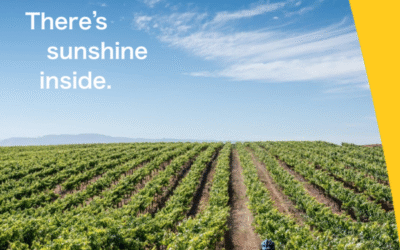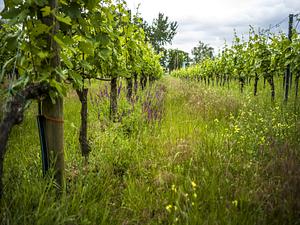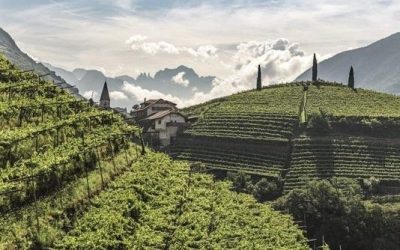
Within the framework of its global environmental strategy, Château Montrose is implementing an extensive agro-pedological and climatic study, the first of its kind to be carried out at an estate. Conducted in association with climatologist Benjamin Bois and geologist Pierre Becheler, the research will build on studies of the terroir previously conducted at Montrose. The main purpose of the study is to better understand and prepare the vineyard in its entirety for climate change.
Understanding how the terroir reacts in the face of global warming
While the terroir of Château Montrose, located on the banks of the Gironde, is among the most privileged, the challenges of global warming have to be faced no matter where. The famous “Cru Classé” of Saint-Estèphe has been deeply involved in sustainable development for over 15 years. Today, it is launching an agro-pedological and climatic study to better understand how the vine interacts with its soil and climatic environment.
The study was kicked off last February. This is the first ever large-scale audit to be conducted at an estate. To carry out the study, the R&D team led by Vincent Decup (technical director at Château Montrose) has called on two specialists, Benjamin Bois, climatologist and Pierre Becheler, geologist. This multidisciplinary committee will study the spatial variability of climate at the estate and its relation to the functioning of the terroir. The aim is to understand how the terroirs will react in the face of climate change by 2050.

Cross-referencing data
The audit will be conducted in several stages. 60 temperature and humidity sensors were set up in the vines last March. Their positioning, above ground and at the same height as the grapes, has taken into account the different topographic areas of the vineyard as well as the characteristics of each plot (early-developing zones, sensitivity to mildew, to drought…). Supported by the study of soil pits that will follow, the analysis of the agro-climatic data provided by the sensors will be carried out in October. The results will make it possible to draw up a map which, when superimposed on other maps and studies of soil resistivity previously conducted, will provide information on plant behaviour in the face of global warming. Cross-referencing agro-pedological and climatic data will make it possible to anticipate the future effects of climate change on the vines and choose a tailored method of vineyard management, perfectly suited to the new conditions.
First analyses will be available during the next harvest…
*Benjamin Bois is a lecturer in viticulture and climatology at the University of Burgundy. He is the author of a dissertation published in 2007 “Agroclimatic cartography at mesoscale level – method and application to spatial variability of climate within the Gironde winegrowing region – impact on vine development and berry maturation”. He is currently coordinating a dissertation on “Spatio-temporal analysis of climatic extremes in the Burgundy-Franche-Comté region: impact on viticulture”.
*Pierre Becheler is a geologist specialising in the study of soils and viticultural soils, hydrology, hydrogeology and geomorphology. He is the author of numerous studies and maps of wine terroirs.










